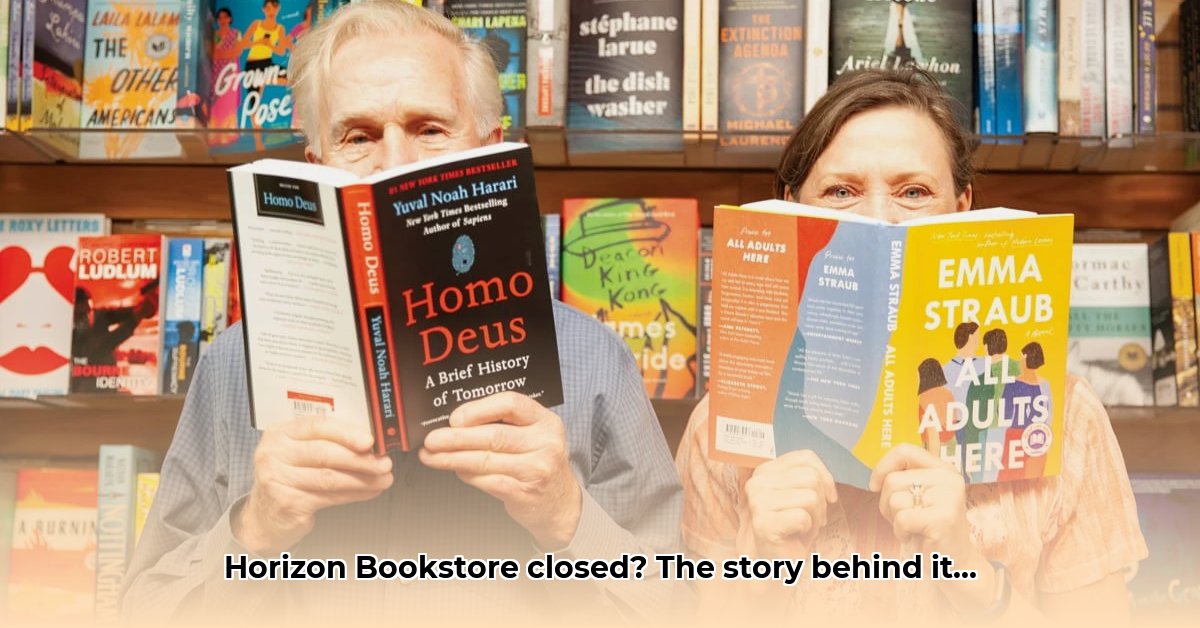
Horizon Bookstore Traverse City Michigan: A Chapter Closes, But the Story Continues
The quiet closing of Horizon Bookstore in Traverse City, Michigan, marked more than just the end of a business; it felt like the end of an era. For nearly six decades, this wasn't just a bookstore—it was the bookstore. A cornerstone of the community and a vibrant hub for literary events, its closure left a palpable void. This isn't merely a business closure; it's a reflection on the challenges facing independent businesses and a testament to a community's deep connection to its local institutions. For similar stories of community businesses, see this example.
More Than Just Books: A Community Gathering Place
Imagine a 22,000-square-foot space brimming with books—not just bestsellers, but a curated collection reflecting the community's diverse interests. That was Horizon Bookstore. It fostered countless connections: author readings sparking lively discussions, book clubs nurturing friendships, and community events bringing people together. For many, Horizon wasn't a store; it was a cherished part of their lives, a piece of Traverse City's soul. Its closing felt like a profound loss. Isn't it telling that a bookstore can become such an integral part of a community's fabric?
The Silent Struggle: Why Did Horizon Close?
While the owner's retirement contributed, the closure's roots run deeper. Independent bookstores face a considerable uphill battle. The rise of e-commerce and shifting consumer habits created a formidable challenge. Increased operational costs, coupled with decreased foot traffic, likely impacted profitability significantly. While precise financial details remain private, Horizon's closure serves as a stark reminder of the fragility of independent businesses in a changing market. What specific economic pressures contributed most significantly to Horizon's challenges?
Lessons from the Pages: Charting a Course for Independent Bookstores
Horizon's story highlights crucial challenges for independent bookstores' survival. Succession planning is paramount. Adapting to a rapidly changing retail landscape is also vital. How can independent stores compete while retaining their unique charm?
Strategies for Success:
Embrace Online Sales: Expand reach and revenue streams. However, this requires investment in technology and marketing.
Strengthen Community Ties: Build loyalty and foster repeat business through community events and engagement. This requires consistent effort and creativity.
Explore Partnerships: Leverage synergistic marketing and shared resources with complementary businesses. Finding compatible partners is key.
Focus on Niche Markets: Create a unique selling proposition, attracting a dedicated customer base. This might limit overall reach.
These strategies aren't foolproof, and their effectiveness depends on location, demographics, and brand. Further research is needed to determine optimal strategies for various contexts.
A Tale of Two Bookstores: The Cadillac Contrast
The continued success of the Horizon Bookstore in Cadillac, Michigan, highlights the importance of local market context. Analyzing the differences between the Traverse City and Cadillac locations—management, community involvement, and market analysis—could offer valuable insights for other independent bookstores.
Turning the Page: A Call to Action
Horizon's closing is a microcosm of the challenges faced by independent businesses nationwide. It underscores the crucial need to support local businesses—not just through purchases, but also through active engagement and advocacy. The community's outpouring of grief and support reflects the value of these institutions. Will we learn from Horizon’s experience and ensure the survival of similar community hubs?
Horizon Bookstore's Legacy: How to Create a Successful Succession Plan for Independent Bookstores
Horizon's closure is a poignant reminder of the challenges facing independent bookstores and the importance of succession planning. Its story highlights the need for proactive strategies, not only for business continuity, but also for preserving the invaluable cultural contributions these stores make. How can we ensure other beloved local bookstores don't suffer a similar fate?
The Heart of the Matter: Community and Commerce
Horizon wasn't just a business; it was a community gathering place. Its closing underscores the need to prioritize both business continuity and the preservation of this community asset. How can we protect these vital community hubs?
The Unseen Challenges: Financial Realities
Independent bookstores face fierce competition and rising operational costs. Horizon's closure emphasizes the importance of long-term financial strategies. Did the owners have a plan to address these challenges? What financial considerations could have improved their situation?
Planning for the Future: A Roadmap for Success
A robust succession plan is crucial:
Identify and Train Successors: Early identification and training of potential successors is vital.
Formalize the Process: Create a detailed, documented plan outlining responsibilities and goals.
Financial Preparedness: Develop a financial strategy addressing operational costs, potential downturns, and transitions.
Community Engagement: Maintain and strengthen the bookstore's connection with the community.
Regular Review and Updates: Regularly assess and adapt the plan to changing circumstances.
The loss of Horizon underscores the urgent need for independent bookstores to implement robust succession plans, safeguarding their financial stability and their place within the community. The intertwined nature of financial health and community engagement is crucial for long-term sustainability.